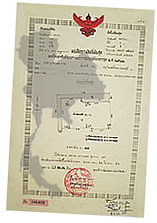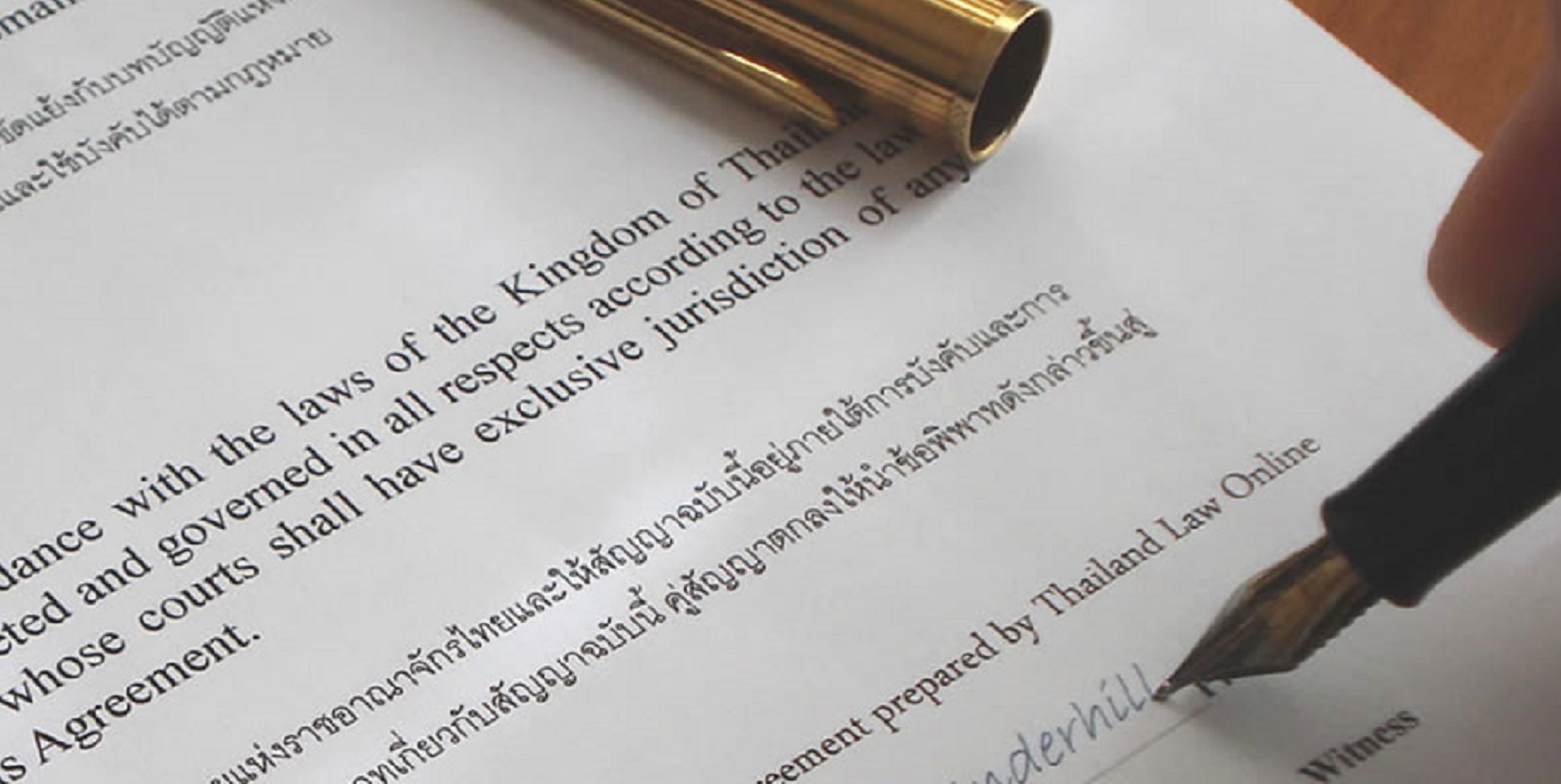 Inheritance Laws
Inheritance Laws
succession of foreign owned real estate
Something you do not own, you cannot transfer by inheritance or last will, something you are not allowed to own as a foreigner in Thailand you cannot acquire by inheritance or by succession laws. Inheritance of land, leased land or condominium by foreigners in Thailand.
Inheritance of land in Thailand
Foreigners are not allowed to own land in Thailand and foreigners cannot inherit land in Thailand. Foreigners married to a Thai national can acquire land as a statutory heir pursuant to section 93 of the Land Code Act but will not be allowed to register ownership (this section is written for foreign heirs who acquire land from another foreigner owning land under a treaty).
Section 93 'A foreigner who acquires land by inheritance as statutory heir can have an ownership in such land upon a permission of the Minister of Interior. However, the total plots of land shall not be exceeding of those specified in Section 87'
Section 93 of the land code act must be read in relation to section 86 of the land code act 'foreign ownership under a treaty' and not in relation to foreigners married in Thailand inheriting land from their Thai spouse as a statutory heir. The over 50-year old section refers to statutory heirs of foreigners who acquired land by virtue of the provisions of a treaty (section 86). The last treaty was terminated in 1970 and there is currently no treaty with any country allowing the Minister of Interior to grant permission to any foreigner to register ownership of land in the Kingdom of Thailand. Any foreign statutory heir (foreign spouse) of land must sell the land within a period of 1 year pursuant section 94 of the land code act.
Note that it is only since 1999 (ministerial regulation) allowed for a Thai national married to a foreigner to acquire land in Thailand during the marriage, and only after is made sure that the foreign spouse does not obtain ownership rights in the land (i.e. the land office letter of confirmation). The foreign spouse may inherit land owned by the Thai spouse, but upon death of the Thai spouse the foreigner will not be given permission to register ownership of land owned by the deceased spouse and the foreigner must sell the land within one year from the date of acquisition by inheritance.
Inheritance of a condominium unit
Section 19 (7) of the condominium act of Thailand divides foreign heirs and legatees of condominiums in qualified and unqualified for registration of ownership. In practice this means that the majority of foreigners inheriting a condo unit in Thailand cannot register ownership and must sell the apartment within one year of acquisition by inheritance.
Section 19 (7) 'A foreigner or juristic person regarded by law as foreign, other than those specified in Section 19 (1) who acquires an apartment by inheritance as statutory heir or legatee or otherwise, as such case may be, shall notify in writing the competent authority within a period of sixty days from the date of acquisition of ownership of apartment, and shall dispose of such apartment within a period of not exceeding one year from the date of acquisition of ownership of apartment. If disposition is not made within said period, the provisions of the fourth paragraph of Section 19 (8) shall apply mutatis mutandis.'
Eligible qualified foreign heirs or legatees under section 19 (1) can register ownership over a condominium unless registration in the foreigner's name would exceed the foreign ownership quota within the condominium. In this case it is required by law that the unit shall be disposed by the foreigner within 1 year from the date of acquisition of such condominium unit by inheritance.
Eligible foreigners under section 19 (1) of the condo act are:
- Aliens permitted to have residence in the Kingdom under the immigration law (qualified to hold ownership within the foreign ownership quota of a condominium).
- Aliens permitted to enter into the Kingdom under investment promotion law (qualified to hold ownership within the foreign ownership quota of a condominium).
- Juristic persons as provided in Sections 97 and 98 of Land Code and registered juristic person under Thai law (qualified to hold ownership within the foreign ownership quota of a condominium).
- Juristic persons which are aliens under section 4 of the foreign business act and have obtained promotion certificate under investment promotion law (qualified to hold ownership within the foreign ownership quota of a condominium).
- Aliens or juristic persons regarded by law as aliens who have brought in foreign currency into the Kingdom or withdrawn money from Thai Baht account of the persons who have residence outside the Kingdom or withdrawn money from foreign currency account (qualified to hold ownership within the foreign ownership quota of a condominium).
Ineligible foreign heirs or legatees (i.e. any foreigner who does not qualify under the above section 19) shall notify in writing the competent official (the local or provincial land office) within a period of sixty days from the date of acquisition of ownership of the unit and shall dispose of such unit within a period of not exceeding one year from the date of acquisition of ownership of apartment (section 19 septum condominium act). If the foreigner fails to do so, the Director-General of Land Department shall have power to sell it on the foreigner's behalf.
Read more: succession foreign ownership of a condominium unit
Inheritance of leasehold properties
Lease (tenancy) is under Thai law a contract right (rental agreement) and a personal right of the lessee and the general principle under Thai (contract) law is that the lease agreement is terminated upon death of the lessee. As confirmed by the supreme court of Thailand the lessee is the essence of the lease agreement, therefore, if the lessee dies the lease contract is terminated. The lease structure needs to include the necessary provisions for succession or the lease is permanently terminated upon death of the lessee. When succession is agreed in the lease agreement the lessee's heirs have the right to claim performance directly from the lessor who signed the lease contract (section 374 Civil and Commercial Code) but not automatically from his successors. To prevent possible complications it could be recommended to include co-lessees in the lease agreement, who can each independently continue the lease in the event of death of one of the lessees.
Inheritance of company shares and control in a 'Thai limited company'
Legally more complicated is the transfer of company control and shares of the foreigner who holds his property under a Thai company. The shares must be transferred at the Department of Business Registration and registered in the names of the foreigner's heirs (handing over the share certificates has no effect as these are not bearer shares) and technically the remaining (Thai nominee) shareholders must hold a shareholding meeting to appoint a new director.
Read more:
Related:

